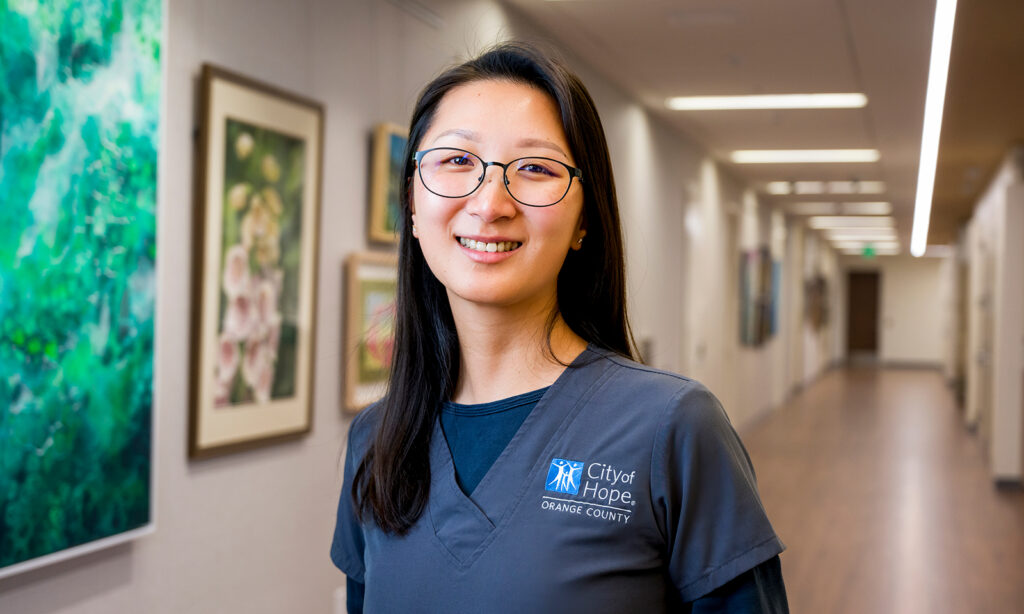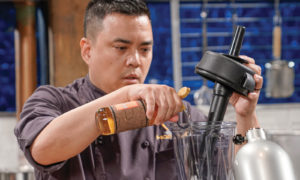Tina Wang reminds herself to smile every time she walks into a cancer patient’s room at City of Hope.
“A big smile can make all the difference to someone who’s waking up anxious and in pain,” says Wang, a chemotherapy nurse. “I try to give as much support to my patients as possible, and be available when they need someone to talk to, just to ease that anxiety.”
Wang learned this the hard way.
A life-changing experience
In 2013, while in her senior year at California State University Long Beach, Wang found herself struggling to breathe. Tests showed she had lymphoma, but even after six rounds of chemo, one tumor wouldn’t go away.
In 2014, Wang’s doctor sent her to City of Hope – one of several exceptional medical centers that now provide world-class care to Irvine residents. After joining a clinical trial, she underwent a bone marrow transplant and CAR T-cell immunotherapy, which strengthens a patient’s immune cells to attack the cancer.
City of Hope performs more bone marrow transplants than anywhere else in the country and enrolls more than 5,000 patients a year in more than 800 clinical trials.
“I sensed the big impact of how nurses can affect a patient during their recovery. I wanted to have that kind of impact.”
Tina Wang, City of Hope nurse
Wang lived at City of Hope for a month during her treatment. Hospital staff kept her company and brought her artwork when she couldn’t leave her room. At other times, nurses encouraged her to take short walks down the hall to strengthen her muscles.
Wang had been studying to be a dietitian, but her experience convinced her to switch careers.
“I sensed the big impact of how nurses can affect a patient during their recovery,” she says. “ I wanted to have that kind of impact.”
‘We’re here to help.’
In 2019, she earned a bachelor’s degree in nursing from California State University San Marcos. While working at a community hospital, she never stopped thinking about City of Hope. When a job opened up at the cancer center in Irvine, she applied and was hired one year ago.
Wang, now 32, with her cancer in full remission, says the best part of her new job is celebrating patients’ small and large steps forward. “I tell my patients what my nurses told me,” she says. “It’s OK to be fearful, but don’t feel you’re going through this journey alone. We’re here to help.”









